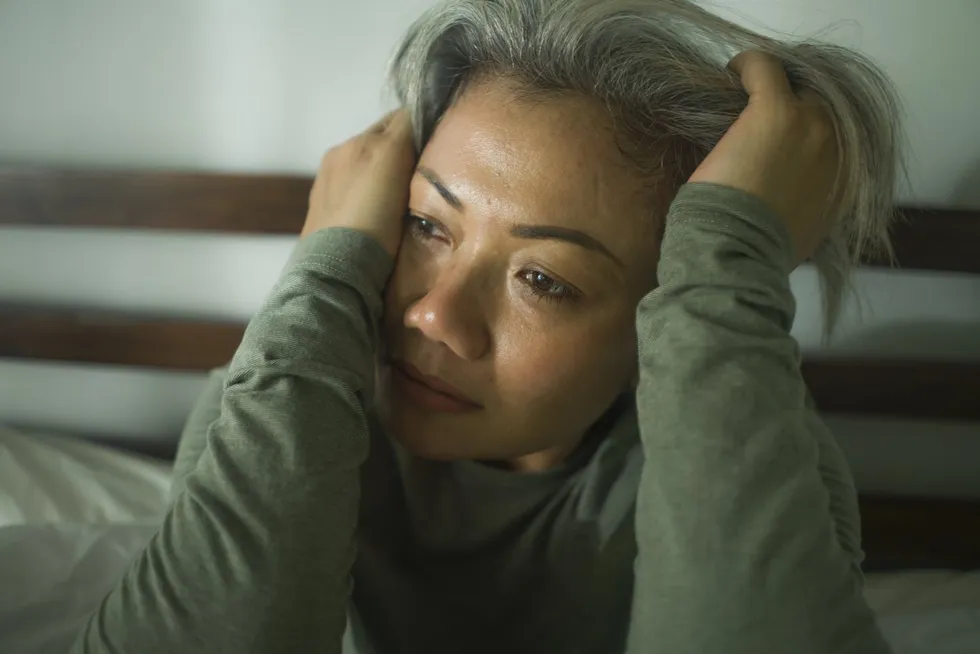
When Stephanie Weaver plans a vacation, her very first thought is, “What if I get a migraine attack?” The possibility causes her so much anxiety that she goes over a game plan with her therapist in case it happens. She packs multiple medications, a hat to shield her eyes from bright lights and Ziploc bags to make an emergency ice pack. “I know I’ll have to deal with whatever comes,” she said.
Weaver, who’s in her 60s and lives in southern California, has struggled with unpredictable migraine attacks most of her life, and they’ve affected her mental health. “I can’t trust my body to behave, and the anxiety that comes with these feelings has never gone away,” she said.
The link between migraine and mental health disorders
According to a 2022 Migraine and Mental Health Connection Survey by the American Migraine Association, migraine disease and mental health strongly impact one another. Even though migraine disease and mental health disorders are separate diseases, they have a correlation with each other. Their links are not fully understood, but the relationship is likely the result of several factors. These can include abnormal brain structures, genetics, sex hormones and stress.
Up to half of people with chronic migraine disease have an anxiety disorder, compared to around 19% of the general U.S. population. And 25% of people with chronic migraine disease have post-traumatic stress disorder (PTSD), which is thought to affect 5% of the general population in the U.S. Other mental health issues linked with migraine disease include a three times higher likelihood of having bipolar disorder and an increased tendency for suicidal ideation (thoughts of taking your own life).
Childhood trauma also plays a role. People who have experienced trauma early in life are 48% more likely to have a headache disorder. The more traumatic events a person experiences as a child, the more likely they are to have migraine disease.
This creates a vicious circle where mental health issues can lead to migraine attacks, and migraine attacks can lead to mental health issues. “When someone is dealing with chronic pain or chronic headache, it’s very understandable why they can also then experience mental health problems too,” said Rashmi Halker Singh, M.D., FAHS, FAAN, a neurologist specializing in migraine at Mayo Clinic and a member of HealthyWomen’s Women’s Health Advisory Council.
Migraine disease affects more women than men
A study from the National Library of Medicine says that more than twice as many women (43%) suffer from migraine attacks compared to men (18%). This is partially due to the fluctuation of estrogen in a woman’s body. “About a third of women who have migraine experience onset at the time of puberty. Menstruation and perimenopause are times when migraine can really be a problem,” said Halker Singh.
Racial discrimination plays a role
People of color are less likely to receive treatment for migraine attacks and mental health disorders compared to white people. Many BIPOC don’t receive proper treatment because of distrust of the healthcare system and racial and socioeconomic discrimination in healthcare.
And they’re less likely to be diagnosed with migraine as well. In fact, the American Migraine Foundation found that only 47% of Black people and 50% of Latinos are likely to receive a migraine diagnosis compared to 70% of white people.
In turn, if patients don’t have a diagnosis, they are less likely to receive the treatment they need. And this means they’re less likely to feel better both mentally and physically.
Two invisible diseases
People with migraine and mental health disorders often struggle to get the support they deserve. This is, in part, because migraine and mental health disorders are invisible diseases, making it difficult for others to understand what you’re going through. Unlike other diseases that are visible, people can’t always see outward signs of migraine and mental health disorders.
It’s important to remember that migraine disease is not something you can control. Halker Singh said her patients often worry about how their migraine attacks impact other parts of their life, including their relationships with their loved ones.
Getting the right treatment
Luckily, there are a lot of treatments available for both mental health disorders and migraine disease. And some of the treatments for each condition are the same, including some overlapping medications such as SSRIs and SNRIs (two types of antidepressants), cognitive behavioral therapy, other forms of psychotherapy, and relaxation techniques.
Halker Singh helps her patients come up with a comprehensive treatment plan, including finding the right medication. “We have so many amazing options,” she said. She also makes sure to discuss ways to prevent attacks. And if a patient is struggling with their mental health, she refers them to a mental health specialist.
Similarly, Weaver takes a whole body approach. “Finding a therapist who works with people with chronic illness, taking a meditation class and learning about my specific triggers have all helped with my anxiety,” she said.
Advocating for better care
In the Migraine and Mental Health Connection survey, 87% of people who experienced migraine and 94% of healthcare providers (HCPs) felt that mental health would improve with better migraine control. This is why it’s important to have an honest conversation about both your mental and physical health with your provider.
Halker Singh said it might even be a good idea to get a second opinion. Asking another HCP to review your diagnosis and treatment plan, especially if you feel it isn’t working well, can make all the difference. Finding an HCP who listens to your concerns and works with you to find the treatment that’s right for you is the key to helping you feel better.
This educational resource was created with support from Pfizer.
From Your Site Articles
Related Articles Around the Web





